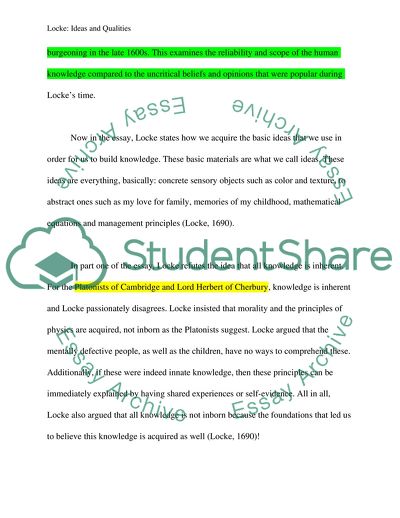Cite this document
(Locke's Distinction Between Ideas and Qualities Essay Example | Topics and Well Written Essays - 1250 words, n.d.)
Locke's Distinction Between Ideas and Qualities Essay Example | Topics and Well Written Essays - 1250 words. https://studentshare.org/philosophy/1798918-lockes-distinction-between-ideas-and-qualities
Locke's Distinction Between Ideas and Qualities Essay Example | Topics and Well Written Essays - 1250 words. https://studentshare.org/philosophy/1798918-lockes-distinction-between-ideas-and-qualities
(Locke'S Distinction Between Ideas and Qualities Essay Example | Topics and Well Written Essays - 1250 Words)
Locke'S Distinction Between Ideas and Qualities Essay Example | Topics and Well Written Essays - 1250 Words. https://studentshare.org/philosophy/1798918-lockes-distinction-between-ideas-and-qualities.
Locke'S Distinction Between Ideas and Qualities Essay Example | Topics and Well Written Essays - 1250 Words. https://studentshare.org/philosophy/1798918-lockes-distinction-between-ideas-and-qualities.
“Locke'S Distinction Between Ideas and Qualities Essay Example | Topics and Well Written Essays - 1250 Words”. https://studentshare.org/philosophy/1798918-lockes-distinction-between-ideas-and-qualities.


